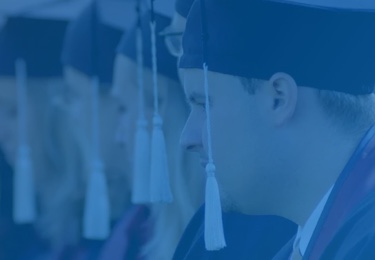Doctoral Research Assistant / PhD Student (gn*) for SigSynCellVollpromotion
Englisch
Arbeitssprache
Münster
Standort
30. Mai. 2024
Bewerbungsende
schnellstmöglich
Antrittsdatum
Content Navigation
Überblick
Anzahl offener Stellen
2
Laufzeit
schnellstmöglich für 3 Jahre
Bewerbungsfrist endet am
30. Mai. 2024
Finanzierung
Ja
Art der Promotion
Vollpromotion
Arbeitssprache
Englisch
Erforderlicher Abschluss
Master
Studienfelder
Biochemie, Biophysik, Chemie, makromolekulare Chemie, organische Chemie, physikalische Chemie, Nanomaterialien, Nanotechnologie, Humanbiologie, Biomedizin
Beschreibung
Beschreibung
Prof. Seraphine Wegner is currently looking for two motivated doctoral candidates with an active interest in interdisciplinary research in the area of synthetic cells. The doctoral candidates will be part of the Marie Skłodowska-Curie Doctoral Network “Signalling Synthetic Cells (SigSynCell)” (see website for other positions within the network).
Consortium
SIGSYNCELL is a doctoral network funded by the European Commission via Marie Sklodowska-Curie Actions (MSCA), whose goal is training through research. It is a consortium that brings together a dozen European academic partners, in addition to private companies, coordinated by the CNRS in Bordeaux (F).
Introduction to SigSynCell
Current biotechnology solutions based on living cells bare the intrinsic limitations that cells are subject to the random process of Natural Evolution, a major drawback for technological applications. Biotechnologies also need to demonstrate that they can be embedded into environment life cycles to become sustainable options. The construction of synthetic cells therefore emerges as a ground-breaking new biotechnology that can overcome the limitation of current biotechnology solutions. Early forms of life have spontaneously emerged from non-living matter in prebiotic processes involving self-assembly, self-organization and elementary chemical reactivity in confined spaces. We now have at hand in the laboratory the tools to study these processes and elucidate their role in living systems. We are therefore now at a time where we can find and implement generic framework for the construction of cellular systems from basic principles and elementary building blocks. In the consortium SIGSYNCELL, we want to develop synthetic cells as systems having the key characteristics function of living systems: its capacity to interact with its environment. In a controlled laboratory environment, both the cells and the environment can be fully controlled and engineered to gradually control and build up complexity of synthetic cell systems.
Research projects of SigSynCell at the University of Münster
Many functions in cells including complex cellular communication arise from the precise control over when and where certain reactions take place. In the group of Prof. Wegner, we achieve high spatiotemporal control over processes in synthetic cells using photoswitchable proteins, which are sensitive to visible light. For more detail on the research profile of the group please see: https://www.medizin.uni-muenster.de/physiolchem/research/ag-wegner/
As part of SigSynCell, the doctoral candidates will explore possibilities of precisely regulating i) transport across lipid membranes and ii) communication in diverse communities of synthetic cells with various social relationships.
Requirements:
- A Master of Science degree (and no previous PhD degree) in Chemistry, biochemistry or related fields
- Advanced level training in Science and Technology of relevance to the specific PhD position, including laboratory experience
- Motivation to work at the interface of disciplines (Chemistry, Biology, Engineering and Physics)
- Good interpersonal, communication and reporting skills, both oral and written and interest for the promotion of science
- Interest for geographical mobility
Mobility conditions:
- MSCA networks require that applicants must not have studied/worked in the host country for more than 12 months in the 3 years immediately prior to the position’s start date
- The individual scientific projects are planned within one of the partner Host Institution and every Doctoral candidate will spend a part of their doctoral studies in another consortium laboratory (planned 3-6 months, maximum 12 months/36 months)
We are looking forward to receiving your application via our application form until 30.05.2024.
Erforderliche Dokumente
Erforderliche Dokumente
- Motivationsschreiben
- Lebenslauf
- Zeugnisse, Zertifikate
- Transkripte
